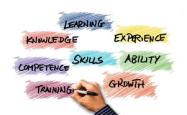Exploring the Core Elements of Educational Philosophy
Education is a complex and multifaceted field that encompasses a wide range of practices, theories, and beliefs. At the heart of this field lies educational philosophy, which serves as the foundation for the principles and values that guide teaching and learning. This essay aims to explore the core elements of educational philosophy, examining how they shape the educational landscape and influence the development of future generations.
First and foremost, educational philosophy is concerned with the purpose of education. This involves asking fundamental questions such as: What is the role of education in society? What are the goals of education? And what kind of individuals should education aim to produce? Different educational philosophies offer various answers to these questions. For instance, some might argue that education should focus on preparing students for the workforce, while others might emphasize the importance of fostering critical thinking and moral development.
A second key element of educational philosophy is the nature of knowledge. This includes considerations of what constitutes knowledge, how it is acquired, and how it should be organized within a curriculum. Some educational philosophies, such as constructivism, emphasize the active role of the learner in constructing knowledge through experience and reflection. Others, like essentialism, advocate for a core curriculum that imparts essential knowledge and skills deemed necessary for all students.
The role of the teacher is another critical aspect of educational philosophy. Different philosophies envision the teacher in various roles, from a mere transmitter of information to a facilitator of learning, a guide, or even a co-learner. The teacher's role is closely tied to the educational goals and the nature of knowledge, as it influences the methods of instruction and the learning environment.

Assessment and evaluation are also integral to educational philosophy. How we measure student learning and success is a reflection of our educational values and goals. Some philosophies prioritize standardized testing as a means of ensuring accountability and uniformity, while others advocate for more holistic approaches that consider a broader range of student abilities and achievements.
The concept of equity and inclusivity is increasingly important in educational philosophy. This involves ensuring that all students, regardless of their background, have equal access to quality education and that the curriculum is inclusive of diverse perspectives and experiences. Educational philosophies that promote equity seek to address systemic biases and create environments where all students can thrive.
Technology's impact on education is another area that educational philosophy must address. With the rapid advancement of technology, there is a growing debate about how it should be integrated into the classroom. Some philosophies advocate for the use of technology as a tool to enhance learning and provide access to a wealth of information, while others caution against over-reliance on technology and the potential loss of interpersonal skills and direct experience.
Lastly, educational philosophy must consider the broader societal and cultural contexts in which education takes place. This includes understanding the influence of cultural values, economic factors, and political ideologies on educational practices and policies. Educational philosophies that are sensitive to these contexts are better equipped to prepare students to navigate and contribute to a diverse and interconnected world.
In conclusion, educational philosophy is a dynamic and evolving field that encompasses a wide range of ideas and perspectives. By understanding the core elements of educational philosophy, including the purpose of education, the nature of knowledge, the role of the teacher, assessment and evaluation, equity and inclusivity, technology's impact, and societal and cultural contexts, we can better appreciate the complexities of education and work towards creating a more effective and equitable system for all learners. As an educator, it is essential to reflect on these elements and consider how they can be applied to enhance teaching practices and promote the development of well-rounded individuals who are prepared to face the challenges of the 21st century.
1.本站遵循行业规范,任何转载的稿件都会明确标注作者和来源;2.本站的原创文章,请转载时务必注明文章作者和来源,不尊重原创的行为我们将追究责任;3.作者投稿可能会经我们编辑修改或补充。









